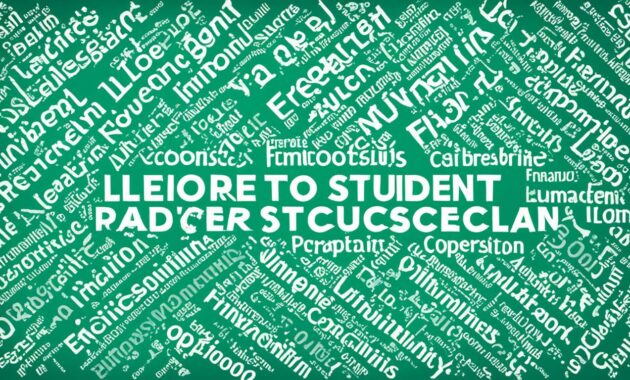As the cost of higher education continues to rise, many students and their families are turning to private student loan lenders to help finance their college dreams. These alternative financing options have become increasingly popular, offering a range of benefits and flexibility that may not be available through traditional federal student loans. In this comprehensive guide, we’ll explore the top private student loan lenders in the United States, delving into the key differences between private and federal loans, the pros and cons of private student loans, and the application process to help you make an informed decision.
The private student loan market has experienced significant growth in recent years, with a diverse array of lenders catering to the unique needs of college-bound students and their families. From established financial institutions like Sallie Mae and Wells Fargo to innovative newcomers such as Discover Student Loans, the landscape of private student loan providers is constantly evolving. By understanding the strengths and limitations of each lender, you can navigate the complexities of private student financing and find the best fit for your educational goals and financial situation.
Whether you’re exploring private student loans as a complement to your federal aid or seeking an alternative solution to cover the full cost of attendance, this article will serve as your comprehensive guide to navigating the private student loan landscape. From interest rates and repayment options to customer service and support, we’ll cover all the essential factors to consider when choosing a private student loan lender, empowering you to make a well-informed decision that will support your educational journey.
Key Takeaways
- Private student loans offer an alternative financing option for college students beyond federal student aid.
- Top private student loan lenders in the US include Sallie Mae, Discover Student Loans, and Wells Fargo Student Loans.
- Understanding the differences between federal and private student loans is crucial when exploring financing options.
- Factors such as interest rates, repayment flexibility, and customer service should be carefully considered when selecting a private student loan lender.
- The application process for private student loans may include eligibility requirements, cosigner considerations, and a thorough review of the borrower’s financial profile.
Understanding Private Student Loan Lenders
As students and families explore financing options for college, private student loans have emerged as a popular alternative to federal student loans. Private student loans are financial products offered by banks, credit unions, and other lenders to help cover the cost of education. Unlike federal student loans, which are backed by the government, private student loans are not subject to the same interest rates, repayment terms, and eligibility requirements.
What are Private Student Loans?
Private student loans are a form of financing that students can use to pay for their educational expenses, including tuition, fees, room and board, and other related costs. These loans are provided by private financial institutions, such as banks, credit unions, and online lenders, rather than the federal government. Private student loans typically have variable interest rates that can be higher than federal student loan interest rates, but they may offer more flexible repayment options and additional features that can be tailored to the borrower’s needs.
Differences between Federal and Private Student Loans
The key differences between federal and private student loans lie in their interest rates, repayment terms, and eligibility requirements. Federal student loans, such as Direct Subsidized Loans and Direct Unsubsidized Loans, have fixed interest rates set by the government and offer more favorable repayment plans, including income-driven repayment and loan forgiveness programs. In contrast, private student loans have variable interest rates that can fluctuate based on market conditions, and their repayment options may be more limited.
Pros and Cons of Private Student Loans
Private student loans can offer several advantages, such as higher borrowing limits, the ability to cover the full cost of attendance, and potentially faster approval processes. However, they also have some drawbacks, including higher interest rates, lack of income-driven repayment plans, and fewer options for loan forgiveness or deferment. Borrowers must carefully weigh the advantages and disadvantages of private student loans to determine if they are the best financing option for their educational goals and financial situation.

Private Student Loan Lenders: Key Players in the Market
When it comes to private student loans, several leading providers stand out in the market. Among the top private student loan lenders are Sallie Mae, Discover Student Loans, and Wells Fargo Student Loans. Each of these institutions offers a range of financing options to help students and their families cover the cost of higher education.
Sallie Mae
Sallie Mae, one of the largest private student loan providers in the United States, offers a variety of loan products to cater to the diverse needs of borrowers. Sallie Mae provides competitive interest rates, flexible repayment terms, and personalized customer service to assist students throughout the loan process. With a focus on helping students achieve their educational goals, Sallie Mae has become a trusted name in the private student loan industry.
Discover Student Loans
Discover Student Loans is another prominent player in the private student loan market. Known for its straightforward application process and transparent pricing, Discover offers a range of loan options, including undergraduate, graduate, and parent loans. Borrowers can take advantage of Discover’s customer-centric approach, which includes responsive service and a commitment to helping students navigate the complexities of financing their education.
Wells Fargo Student Loans
Wells Fargo Student Loans is a leading provider of private student loan solutions, offering a wide array of financing options to meet the unique needs of borrowers. With a focus on personalized guidance and a commitment to responsible lending, Wells Fargo has established itself as one of the top private student loan lenders in the market. Borrowers can explore Wells Fargo’s competitive interest rates, flexible repayment plans, and dedicated customer support to find the best fit for their educational financing needs.
Factors to Consider When Choosing a Private Student Loan Lender
When selecting a private student loan lender, there are several key factors that borrowers should carefully evaluate to ensure they find the best fit for their needs and financial capabilities. These factors include interest rates and fees, repayment options and flexibility, and the quality of customer service and support.
Interest Rates and Fees
One of the most crucial considerations when comparing private student loan lenders is the interest rates and associated fees. Borrowers should compare the variable and fixed interest rates offered by each lender, as well as any origination fees, application fees, or other charges that may be incurred. Understanding the total cost of the loan over its lifetime is essential for making an informed decision.
Repayment Options and Flexibility
Repayment terms and flexibility are also important factors to consider when choosing a private student loan lender. Borrowers should look for lenders that offer a range of repayment options, such as deferred payments, interest-only payments, or graduated repayment plans. Additionally, the ability to modify repayment schedules or temporarily postpone payments in the event of financial hardship can provide valuable peace of mind.
Customer Service and Support
The quality of customer service and support provided by the lender can also have a significant impact on the borrower’s experience. Prospective borrowers should research the lender’s reputation for responsive and helpful customer service, as well as the availability of resources and tools to guide them through the loan process and repayment period.

Applying for Private Student Loans
Navigating the process of applying for private student loans can seem daunting, but with the right information, borrowers can increase their chances of securing the necessary funding for their education. This section will guide you through the key steps and requirements to consider when applying for private student loans.
Eligibility Requirements
Private student loan lenders typically have specific eligibility criteria that applicants must meet. These often include a minimum credit score, satisfactory income or employment status, and enrollment in an eligible educational program. Understanding these eligibility criteria is crucial in determining whether you qualify for a private student loan and what loan options may be available to you.
Application Process
The application process for private student loans generally involves submitting a formal application, providing personal and financial information, and potentially undergoing a credit check. Depending on the lender, the application process may be completed online, over the phone, or through a combination of both. It’s important to gather all the necessary documentation, such as proof of enrollment, income statements, and identification, before starting the application process.
Cosigner Requirements
Many private student loan lenders require borrowers to have a cosigner to qualify for a loan. A cosigner is a person, usually a parent or guardian, who agrees to take on the financial responsibility of the loan if the borrower is unable to make the payments. Meeting the lender’s cosigner requirements, such as having a minimum credit score or income level, can significantly impact the approval and terms of the loan.







